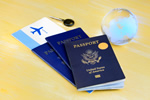Expat retirees in Thailand shocked and confused by new financial rulings for visas

Expat retirees in Thailand shocked and confused by new financial rulings for visas
In the past, Thai immigration’s retirement visa requirements were relatively straightforward, with the financial requirement ensuring applicants could fund their stays. A deposit of 800,000 baht - approximately £20,000 dependent on the exchange rate - in a Thai bank for at least three months prior to the annual visa extension was required, with a period of two months for the first visa application. After visas were granted, applicants could withdraw funds to support their lifestyles, topping the bank account up to 800,000 three months before applying for their next visa extension.
Without notice, the 800,000 deposit in a Thai bank account must now be lodged two months prior to a visa application or extension, and retained in the bank for three months after the application or extension has been granted. In addition, only 400,000 is allowed to be withdrawn, leaving what seems to be an untouchable bond of 400,000 baht in the bank account and reducing by half expats’ annual spend. The reason behind the change is believed to be a move against visa agents who falsify foreign bank statements for expats without the required 800,000 initial deposit, although the recent refusal of USA and UK consulates to verify amounts may also have been a contributory factor.
Until now, it's always been understood that the 800,000 deposit was proof of having enough funds to cover a year’s retirement expenses, as average monthly wages for Thais vary between 800 and 12.000 baht. Following the announcement, an English language forum posted an unofficial poll asking how many expats would have to leave Thailand due to the new ruling. The poll was displayed on Facebook as well as on the forum’s website, with differing results. On the website, some 23 per cent said it would seriously affect their plans to stay, some 69 per cent stated they wouldn’t have to make any major changes and just eight per cent said they would be forced to leave. However, on the Facebook page, the results were very different, with 49 percent saying they would have to leave and 51 per cent able to stay.
It also has to be recognised that the strength, some say manipulated strength, of the Thai baht is another factor affecting expats’ financial wellbeing, as is inflation and the increasing cost of living. Many expats are angry at the sudden news, saying they’ve always been assured by immigration officers that the 800,000 baht deposit was their proof that retirement visa applicants have enough to support themselves for the duration of the one-year visa and enough to replenish the bank account for the next year’s visa extension. Replies on the forum are suggesting it’s just a ploy to get more expat cash locked into the Thai banking system, but others well able to afford the change are suggesting it’s the beginning of the end and are planning to leave for more welcoming retirement destinations elsewhere in Asia, Europe or the Americas.
Related Stories:
- Expats find peace in the covid-19 refuge of Dahab town - July 20, 2020
- Expats in Malaysia still banned from overseas travel - July 17, 2020
- HSBC Asia to cut back on internal expat relocations - July 16, 2020
- China hits its expats with 45 per cent tax on overseas earnings - July 15, 2020
Latest News:
- Tips on a trouble-free relocation as an expat overseas - July 20, 2020
- Expats find peace in the covid-19 refuge of Dahab town - July 20, 2020
- Is Kuwaitization the unintended result of the oil price crash? - July 20, 2020
- Expats unhappy abut changes to Korean points-based visa system - July 17, 2020
- Chiang Mai and Bangkok no longer bargain locations for expats - July 17, 2020
- Expats in Malaysia still banned from overseas travel - July 17, 2020
- Vietnam welcomes expats to its safe, affordable lifestyle - July 16, 2020
- Asian tiger economies reach out to expats in Hong Kong - July 16, 2020
- HSBC Asia to cut back on internal expat relocations - July 16, 2020
- Tips on integrating for newly-arrived expats - July 15, 2020


